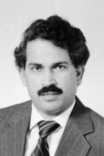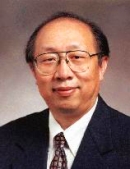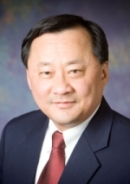TCDP Award Receipients
- 2008-2009: Prof. Kenneth P. Birman

Ken Birman [http://www.cs.cornell.edu] is The N. Rama Rao Professor of Computer Science at Cornell University. Consistency, reliability and data replication have been themes of his work for nearly thirty years, and many of today's large cloud-computing platforms (for example, IBM Web Sphere, Microsoft Enterprise Clustering and a number of Amazon's "gossip-based" subsystems) draw on ideas first explored by his group.
Birman's best known work was on the Isis Toolkit, which introduced the virtual synchrony model, and became central to the French air traffic control system and US Navy AEGIS. Isis also operated the New York Stock exchange for more than a decade and was used in hundreds of financial, process-control and data center settings. Other widely cited systems created by Birman and his team include the first widely used publish-subscribe message bus (the ``News'' subsystem in Isis); the Astrolabe platform for scalable monitoring, data aggregation and system management; the Bimodal Multicast, and the Kelips 1-hop DHT. On the more theoretical side, Birman went on to merge the virtual synchrony model with the state machine replication model used by Paxos, to create a powerful new model for dynamically reconfigurable services. He pioneered the analysis of gossip-based protocols, and has been a leader in applying optimization techniques to distributed systems resource management and similar problems. Reiter and Birman introduced the first dynamic group key replication protocol, to secure groups of components that must tolerate faults and allow new members to join at runtime.
The author of several books and more than 200 journal and conference papers, Dr. Birman was Editor in Chief of ACM Transactions on Computer Systems from 1993-1998, is a Fellow of the ACM and the winner of the 2009 IEEE Kanai Award. He has also founded and was CEO of three companies (Isis Distributed Systems, Reliable Network Solution and Web Sciences), and has consulted extensively for the industry, the US government, and the military.

Dr. Chita R. Das (homepage) is a professor in the Department of Computer Science and Engineering. His primary research interests include computer architecture, parallel and distributed computing, clusters, interconnnection networks, processor management in multiprocessors, Internet QoS, mobile computing, performance evaluation and fault-tolerant computing.
- 2007-2008: Prof. Richard M. Karp

Richard M. Karp (homepage) was born in Boston, Massachusetts on January 3, 1935. He attended Boston Latin School and Harvard University, receiving the Ph.D. in 1959. From 1959 to 1968 he was a member of the Mathematical Sciences Department at IBM Research. From 1968 to 1994 and from 1999 to the present he has been a Professor at the University of California, Berkeley, where he held the Class of 1939 Chair and is currently a University Professor. From 1988 to 1995 and 1999 to the present he has been a Research Scientist at the International Computer Science Institute in Berkeley. From 1995 to 1999 he was a Professor at the University of Washington. During the 1985-86 academic year he was the co-organizer of a Computational Complexity Year at the Mathematical sciences research Institute in Berkeley. During the 1999-2000 academic year he was the Hewlett-Packard Visiting Professor at the Mathematical Sciences Research Institute. The unifying theme in Karp's work has been the study of combinatorial algorithms. His 1972 paper, "Reducibility Among Combinatorial Problems," showed that many of the most commonly studied combinatorial problems are NP-complete, and hence likely to be intractable. Much of his work has concerned parallel algorithms, the probabilistic analysis of combinatorial optimization algorithms and the construction of randomized algorithms for combinatorial problems.
Dr. Karp has made very significant contributions in the field. His current activities center on algorithmic methods in genomics and computer networking. He has over 120 publications in books, journals, and conference proceedings. He has earned a number of honors for his work, including: the U.S. National Medal of Science, Turing Award, Fulkerson Prize, Harvey Prize (Technion), Centennial Medal (Harvard), Lanchester Prize, Von Neumann Theory Prize, Von Neumann Lectureship, Distinguished Teaching Award (Berkeley), Faculty Research Lecturer (Berkeley), Miller Research Professor (Berkeley), Babbage Prize and eight honorary degrees. He is a member of the U.S. National Academies of Sciences and Engineering, the American Philosophical Society and the French Academy of Sciences, and a Fellow of the American Academy of Arts and Sciences, the American Association for the Advancement of Science, the Association for Computing Machinery and the Institute for Operations Research and Management Science.
- 2006-2007: Dr. Wei Zhao and Dr. Benjamin W. Wah

Wei Zhao (homepage) is currently the Dean of the School of Science at Rensselaer Polytechnic Institute. Before he joined RPI in 2007, he was a Senior Associate Vice President for Research at Texas A&M University. Between 2005 and 2007, he also served as the Director for the Division of Computer and Network Systems in the National Science Foundation. He completed his undergraduate program in physics at Shaanxi Normal University, Xi'an, China, in 1977. He received his M.Sc. and Ph.D. degrees in Computer and Information Sciences at the University of Massachusetts at Amherst in 1983 and 1986, respectively. During his career, he has also been a faculty member at Amherst College, the University of Adelaide, and Texas A&M University.
As an IEEE Fellow, Wei Zhao has made significant contributions in distributed computing, real-time systems, computer networks, and cyber space security. His research group has been recognized by receiving various awards and prizes, including the outstanding paper award from the IEEE International Conference on Distributed Computing Systems, the best paper award from the IEEE National Aerospace and Electronics Conference, an award on technology transfer from the Defense Advanced Research Program Agency, and the 2nd prize in the international ACM student research contest. Dr. Zhao is an inventor for two U.S. patents and has published over 250 papers in journals, conferences, and book chapters.

Benjamin W. Wah (homepage) received the PhD degree in computer science from the University of California, Berkeley, in 1979. He is currently the Franklin W. Woeltge Endowed Professor of Electrical and Computer Engineering and a professor of the Coordinated Science Laboratoryof the University of Illinois at Urbana-Champaign, Urbana, IL. Previously, he had served on the faculty of Purdue University (1979-1985), as a program director at the US National Science Foundation (1988-89), as Fujitsu Visiting Chair Professor of Intelligence Engineering, University of Tokyo (1992), and McKay Visiting Professor of Electrical Engineering and Computer Science, University of California, Berkeley (1994). In 1989, he was awarded a university scholar at the University of Illinois; in 1998, he received the IEEE Computer Society Technical Achievement Award; in 2000, the IEEE Millennium Medal; in 2003, the Raymond T. Yeh Lifetime Achievement Award from the Society for Design and Process Science; and in 2006, the IEEE Computer Society W. Wallace-McDowell Award and the Pan Wen-Yuan Outstanding Research Award.
Dr. Wah's current research interests are in the areas of nonlinear search and optimization, multimedia signal processing, and computer networks. He cofounded the IEEE Transactions on Knowledge and Data Engineering in 1988 and served as its editor-in-chief between 1993 and 1996, and is the honorary editor-in-chief of Knowledge and Information Systems. He currently serves on the editorial boards of Information Sciences, the International Journal on Artificial Intelligence Tools, the Journal of VLSI Signal Processing, World Wide Web, and Neural Processing Letters. He had chaired a number of international conferences, including the 2000 IFIP World Congress and the 2006 IEEE/WIC/ACM International Conferences on Data Mining and Intelligent Agent Technology. He has served the IEEE Computer Society in various capacities, including as vice president of Publications (1998 and 1999) and president (2001). He is a fellow of the AAAS, the ACM, and the IEEE.
- 2005-2006: Dr. Ming T. Liu and Dr. John A. Stankovic